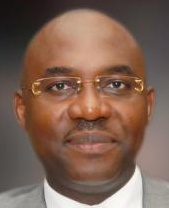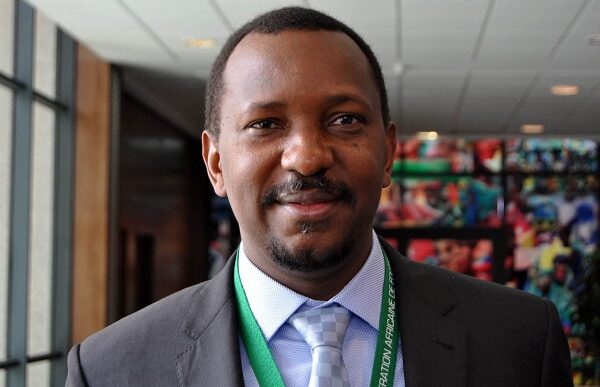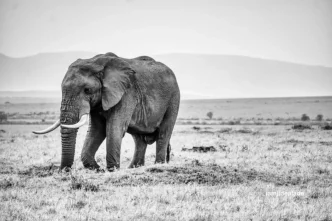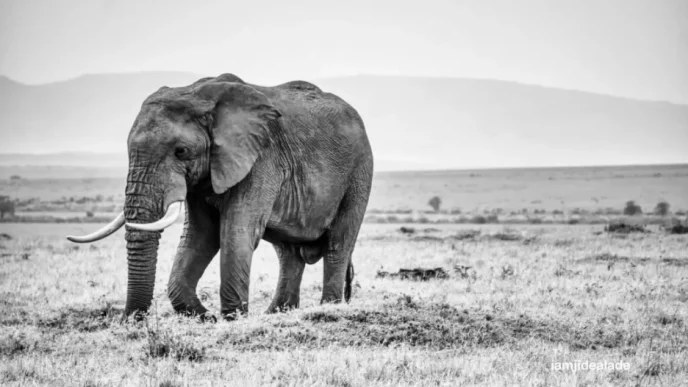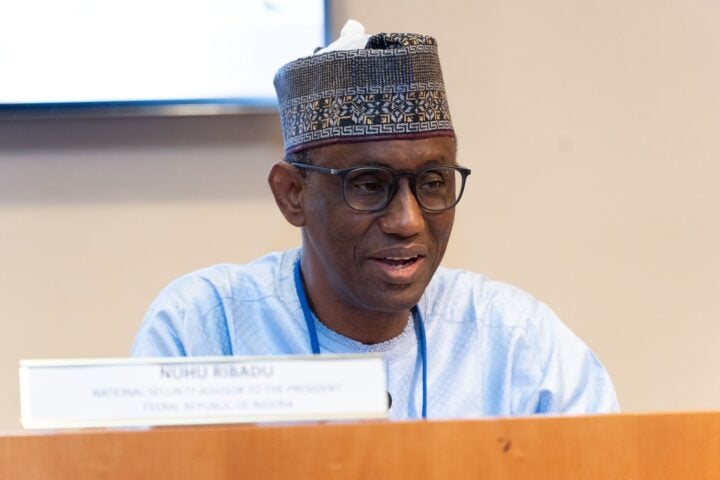In conversation around African culture, the art of giving is often characterised as binary. The material and the immaterial. Whereas the former consists of gifting, say, gold and silver; the latter involves the intimacy of donating, say, time.
Without denying the value of a material gift, there can, of course, be no disputing the nobility in devoting time to the pursuit of the interests of others. For, in the materialist world, we are classified either as billionaire, millionaire, simply comfortable or poor. Which means that our ability to give is contingent on what providence endows us with.
But while the size of our wealth may then vary individually, time is definitely a leveler for all. So, it can be seen that to give of one’s time — a resource universally fixed for everyone — is to truly give more indeed.
This is how I choose to define the essence of Azubuike Ishiekwene, a friend who sticks closer than a brother. Journalism had introduced us more than three decades ago in Lagos first as acquaintances and, despite wide age gap, became buddies, then brothers, collaborators. I count him among that special tribe instinctively wired and eager to volunteer of their own allotted 24 hours often in the service of those not in a position to give anything in return.
Advertisement
It is often said that the factor of woman or money is the bane of friendship between two males. But for more than a quarter century that Azu and I became what the Yoruba classify as “kori kosun” (intimate friends), we have never quarreled for one day. Which is a reflection of his temperance and tolerance.
I, therefore, count myself among the countless beneficiaries of his generosity of spirit, quite ecumenical in texture. You only need to hint Azu of a difficulty — whether professional or personal — and, in another moment, he has everything already worked out clinically like oracle in terms of solution options.
Indeed, his spare frame belies an immense capacity for hard work and laser focus. Not until a dire medical warning came few years ago did Azu, for instance, finally agree to accept a major lifestyle change: muting his phone after 10P.M. Over the years, he had become addicted to an editor’s hazardous routine: working 24 hours.
Advertisement
But regardless, with the furious force of a soldier ant, Azu still juggles a lot of things at once: business manager, columnist, writer, reporter, speaker, mentor etc. The amazing thing is the adroitness he brings to bear in each of these responsibilities.
Even at that, he yet has this uncanny way of inserting himself into other people’s world and inheriting their battles or yokes, so to speak.
It was in the course of similarly pushing the boundaries of “community service” that he, for instance, had met his “missing rib” in the 80s. Then, Azu was roving around the idyllic campus of UNILAG following the proverbial “October Rush” when he bumped onto a needy JAMBITE trying to sort out her registration. Characteristically, the “Good Samaritan” took over her burden. Thereafter, one thing led to another and he and Rume became an item on the Akoka campus. The rest is now history.
That same spirit undoubtedly led him into countless volunteer organizations like the Open Fees NGO that is committed to putting underprivileged children through school. One of its beneficiaries happens to be Azu’s own former gateman, now in the medical school. When we started National Life newspapers in 2008, I drew immeasurably from Azu’s hands-on experience as Controller at the Punch. And for the years I served as Information Commissioner in Edo State and had to cope with choking pressure of office, he was my backroom booster who would help deliver excellent papers rapidly, at no costs. I also did not have to worry much about any backstabbers in the often treacherous media space. Azu had my back fully covered.
Advertisement
Maybe that has to do with his growing up in the rough and tumble of what used to be Lagos’ most iconic ghetto in the 70s and 80s — Ajegunle, where the sense of community was strong and loyalty was religion. No wonder, one of Azu’s favorite songs is Akon’s folksy “Ghetto”.
Professionally, tomes have been written or said about his significant contributions to Nigerian letters as a consistent public intellectual of more than three decades standing. For this particular purpose, I choose to bear testimony on a slightly different dimension of the Azu enigma: a deep commitment to family values. His professional accomplishments are arguably matched by equal success in building an adorable home with the kids turning out excellently well.
Suffice to add that as our friendship deepened over the years, so did our individual families become integrated. Before my own kids left home for the uni, “Big Mummy” (Rume) made it a point of duty to host them at weekends from time to time at their Magodo, Lagos home.
By mid 2000s, frustration with ASUU’s prolonged strike eventually pushed the Ishiekwenes into pulling their first daughter, Ashioma, from UNILAG and enrolling her in a top university in the U.S., putting them under financial pressure. I should know. Azu and I have been involved in a lot of collaborations — both intellectual and entrepreneurial — yielding some money. Since I hadn’t started paying “serious school fees” as the kids were still in primary school in the 2000s, I invested mostly in properties. Azu’s share of whatever we made went almost entirely offshore into school fees and upkeep allowances in hard currencies. In fact, I used to tease him then as the Nigeria’s unacknowledged best authority on the black market to ascertain the prevailing exchange rate for either US dollars or British Pounds.
Advertisement
Happily, Ashoma earned both first and second degrees in flying colour in Chemical Engineering. The second child, Meke, the chubbier version of the dad, read Law in the U.K. While Nkechi earned her PhD from New York university last year.
Before Ewan, Ese and Joshua too departed home for the uni, the transition rite was never complete without pep talk from Uncle Azu. Often mixing humor with certain patriarchal sagacity, he would first praise them for excelling in WAEC and then admonish them to, when weary or tempted, always remember our sacrifice as parents and, above, forever uphold the family’s good name which we labored hard to build.
Advertisement
From time to time, Azu never forgets to wire them money in continued expression of a shared commitment and affection. So much that his courier in the U.S. inadvertently almost fell into bankruptcy on one occasion. The guy had mistakenly added an extra “0” to the dollar figure he sent my first son. Almost immediately, the poor guy dialed Ese’s number frantically, to no avail. Soon, I was contacted to quickly alert the boy not to assume a jackpot.
Curiously, after repeated dials, I too could not reach the boy.
Advertisement
Which kind wahala be dis?!
Suspense.
Advertisement
It was not until after what seemed like eternity that Azu eventually called back to announce that Ese had refunded the excess. The momentary “digital disappearance” was because Ese’s phone battery went flat.
God forbid thing!
That said, let it also be noted that Azu’s trademark smile however hides one thing: an immense capacity for mischief. Such that when victims of his caustic pen finally meets him in flesh for the first time, they are often left wondering if there is any pound of flesh left to exact, metaphorically. I recall vividly a rather hilarious encounter we had with Chief Tony Anenih (of blessed memory) over two decades ago at a social event.
The putative “Mr Fix It” of PDP had prior slammed a multi-billionaire libel suit on Punch over an unflattering news story. To worsen matters, Azu had never stopped peppering the PDP supremo in his column in Saturday Punch.
While exchanging banters on the sidelines of the occasion that fateful day, often magisterial Chief Anenih chose to first blanch Azu literally by giving him a condescending look from head to toe before remarking with a sardonic humour: “You already look so lean. By the time you people at Punch cough out damages to me at the court, I wonder if you’d have any flesh remaining on your bones.”
We all laughed deliriously.
With Azu, it is always “yabis” unlimited, giving as much as he takes. In fact, he has a unique gift to make others laugh at his own expense. A classic example is his recall several years ago of his experience during a trip to Thailand. Hearing Azu bemoaning severe body aches after such a tortuous flight from Africa to Asia, his empathetic host (a fellow Nigerian) had recommended he went for body massage. Pronto, Azu jumped into his jeans, T-Shirt and sneakers for the parlor down the street.
Not until he was ushered into a dimly-lit room and a barely clothed damsel sashayed in did Azu become conscious of the actual implication of full body massage “with happy ending”.
Of course, Thailand is notorious for sex tourism insidiously executed through the ubiquity of “innocuous” massage parlors.
As a “Pastor”, Azu quickly did a cross sign for divine fortification against temptation on a foreign soil. Then, the young lady, scared of the prospect of losing revenue and certain backlash from her Madam, broke down in tears.
Not to worry, Azu agreed to pay for services not rendered as a compromise that fateful night in Bangkok.
I laughed when he narrated this story to me, unwilling to be drawn into a debate at to my own possible response in the circumstance.
Happy 60th birthday!, Azu.
Views expressed by contributors are strictly personal and not of TheCable.
Add a comment
